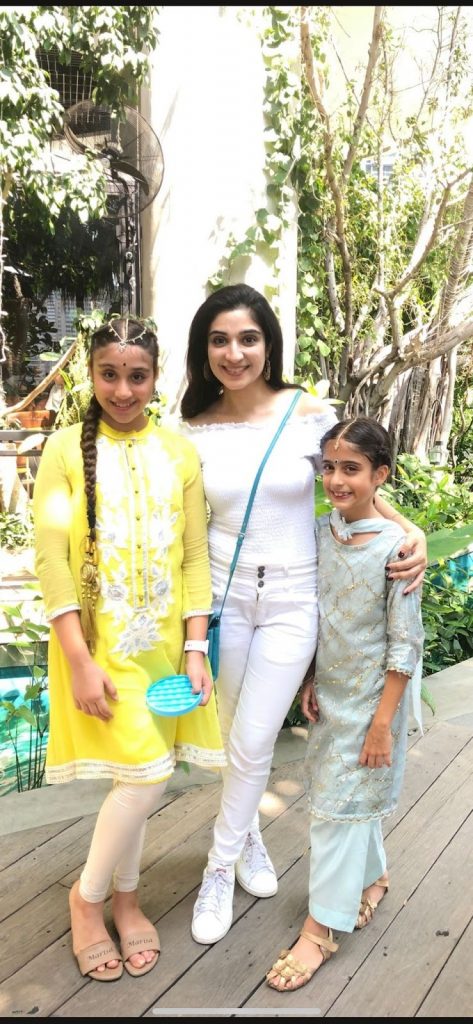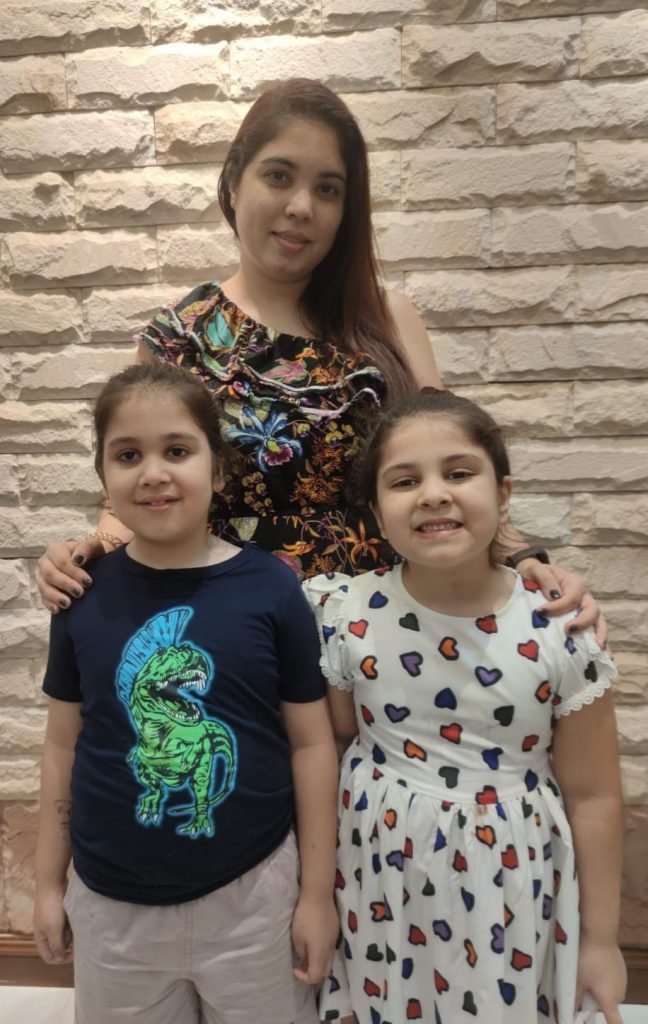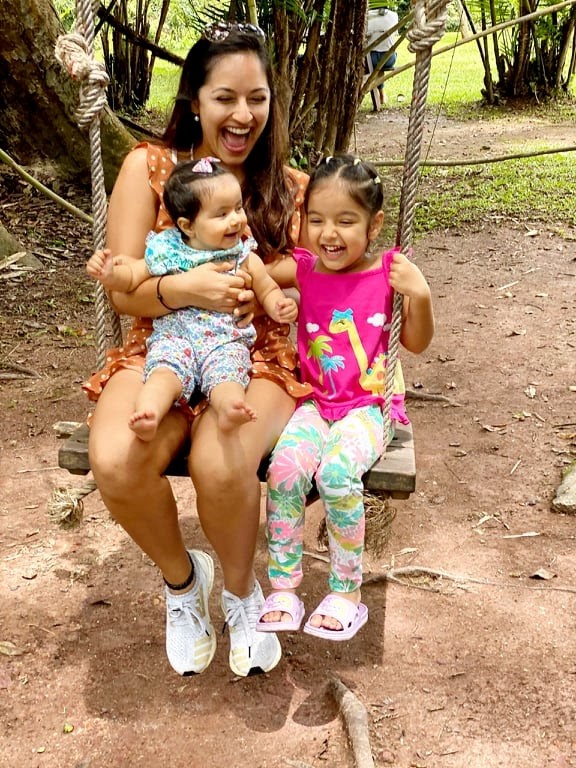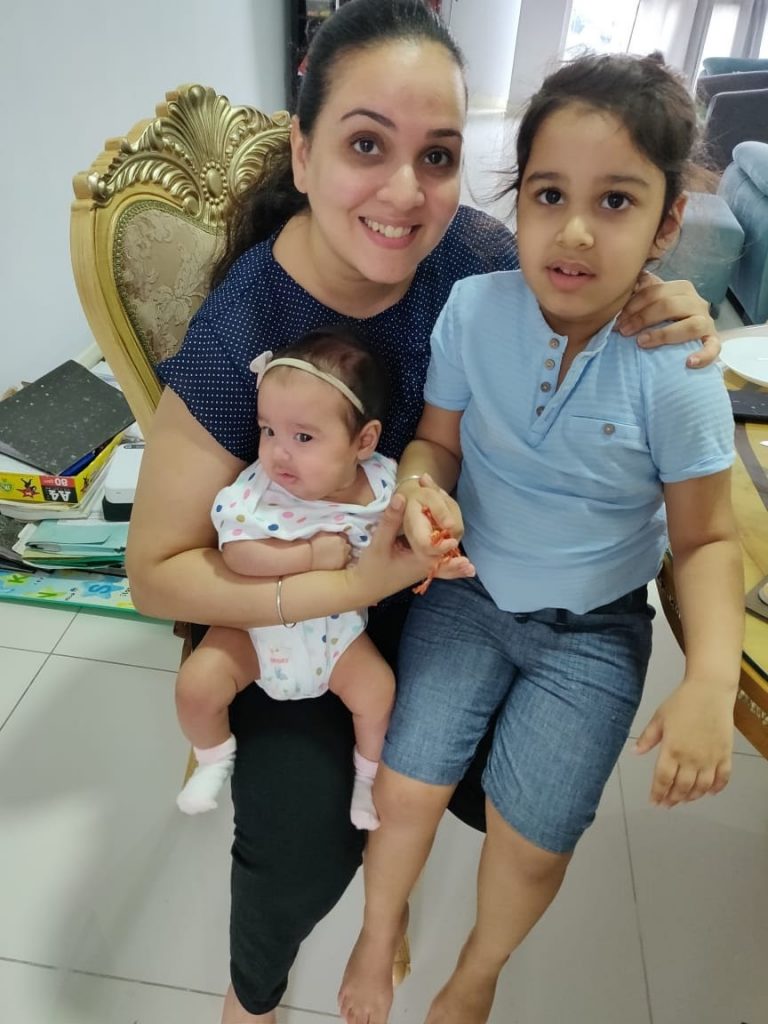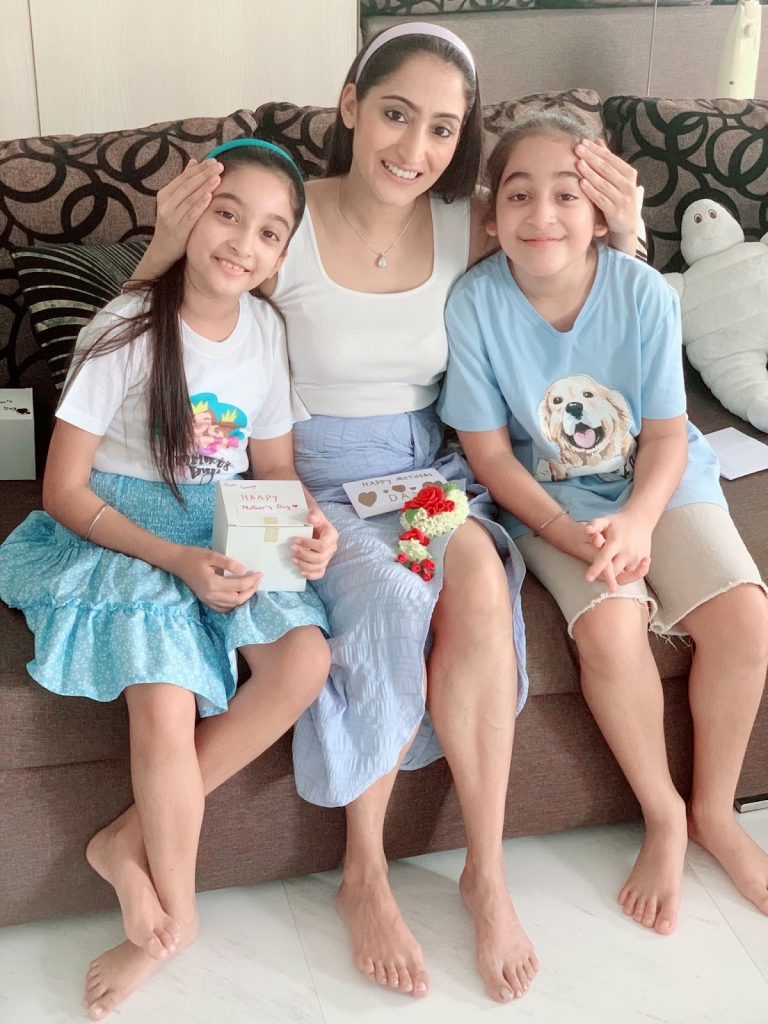Let’s face it, parenting in a pandemic is not easy!
By Rubani Sethi
At the time the pandemic broke out, we as adults had to rush to understand what was unfolding, and with that our little ones were also forced into embracing the unfamiliar. While we understood what was taking place, it was expected that it would be difficult for our children to fully come to terms with the ‘new normal.’ To better understand this challenge, Masala asked Thai-Indian parents to share what it was like to navigate the pandemic with their children.
Naina Kunkudatharn
Mother of Mehar (age 11) and Arshia (age 9)
Children are the purest, most honest and straightforward little beings! I didn’t find it too difficult to explain what was going on, they were quick to learn, adapt, and to simply put it – “monkey see, monkey do!” The toughest part was the ‘going to school’ part. Having to explain the risks of stepping out and meeting other people was not easy. Another thing we had to explain was, “being over cautious is still not cautious enough” and that anything can happen regardless of how much care you take while coming in close contact with other people.
In our case, we live with elderly parents, and they are very dear to my children. Their love for their grandparents is beyond measure, so that made it easier for us to explain to them to stay put for the sake of protecting everyone. Spending more time together at home, connecting with them more, we’ve gotten to learn so much from them. Their carefree attitude towards life. The glow in their eyes when they master a task they’ve been trying to do for the longest time!
One of the funniest things uttered by my eight year old was, “do you know burping in public is like farting from the mouth? Because now we have to wear a mask, so there is something to cover it like when we fart, we have our pants on!” Have you ever thought about that? I didn’t!
Rasna Sethi
Mother of Krish (age 7) and Vaani (age 5)
Thankfully my kids were already used to wearing masks due to the PM2.5 air pollution, so transitioning into needing to wear masks due to COVID wasn’t difficult. With the support of school, they were taught the necessary steps for taking care of themselves: using hand sanitisers, mask-wearing, and social distancing.
Children learn by example, so when they saw that everyone around them was doing the same, it made it normal. To make things more fun for them, I would buy colourful masks and cartoon sanitiser bottles.
Kids have such a natural curiosity too, my son once asked me if I knew the history of how masks were invented. I had no idea, so I had to Google it!
Simi Singhsachathep
Mother of Zara (age 4) and Yasmina (age 1)
I was concerned about how I’d explain the virus to a three year old at first, but like most kids, my daughter loves stories. So I made up stories about how the virus is invading the world and we can all be superheroes fighting the virus by wearing masks and washing our hands regularly. I made social distancing a game and said we would have to maintain distance from everybody at least at an arm’s length away.
Kids adjust to lifestyle changes fairly easily, especially when it becomes the norm in society. At first we had to keep reminding Zara to keep her mask on, there were times it was a struggle to get her to wash her hands and not touch her face but hand sanitisers have been a blessing! There were also some funny questions at the beginning. Zara once asked if there were also friendly viruses. During the ATK test, she has said she looks forward to the saliva test because “it’s similar to a science experiment.”
Mannu Madan
Mother of Sehejh Singh Bajaj (age 5) and Anaahath Kaur Bajaj (6 months old)
When COVID hit, my then three year old had to stop school and he just failed to understand why he wasn’t going and why everyone was home all the time. I felt like a tape recorder, having to repeat daily that we cannot go to school just yet and that we are safe at home. We did try to explain what COVID is to him in a way that he understands – so to him COVID is scary and it makes us really sick so we must wear a mask to protect ourselves and wash our hands regularly.
He took to wearing the mask quite willingly because he knew that if he wanted to step out of the house, he had to wear it. He didn’t have problems with sanitising either, in fact he often says “I have to wash my hands because I have coronavirus on my fingers”. I don’t think he fully understands what COVID is but he does use it in his conversations. For example, “when COVID ends, we will go to Bangkok” or “when COVID goes away, I can go to my friend’s house.” I do feel for the kids for losing out on school and play time, but we’ve had to do whatever it takes to keep our family and community safe.
Lovely Sirinarang
Mother of Saaya (age 10) and Saanjh (age 10)
As my children are older they had many questions about school like, “when can we go back!?” I am quite sure all the mommy WhatsApp chat groups right now are packed with questions like: “are you sending your kids back to school?”, ”Is it safe to send them back?” I think it’s natural to worry. I strongly agree with the MoE’s strict measures, rules, and regulations for getting every member in school tested with the ATKs twice a week. Even if this cannot control the COVID cases on a full scale, it gives parents peace of mind that our kids are testing negative and are safe.
Personally, I feel that children are at a higher risk of mental health issues and developmental setbacks without in-school learning. They need to be in the classroom, not just for their academic well-being, but also for their emotional and social well-being.
We know that COVID is going to be with us for a while, so all we can do is to guide our children and keep assuring them about the safety measures. Starting with the simple practices of wearing masks, washing their hands regularly, coughing or sneezing into their elbow, and reminding them to tell us if they start to feel feverish, have a slight cough, or any difficulty in breathing. Most importantly, we play our part by testing them regularly, as per school’s protocol, and as per my own protocol, I test my twins three times a week to be safe!



